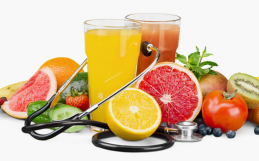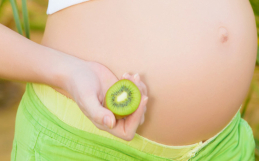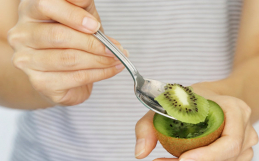Contents:
1. Constipation
2. Drink more water
3. Move more
4. Eat the right amount of fibres
Constipation
Constipation or chronic constipation affects between 15-20% of the Italian adult population, especially women (approximately 80% of cases) with an average age of fifty.
- Constipation causes a slowing down of the faeces in the intestine, or difficulty in evacuation (rectal constipation), an annoying condition that means going to the bathroom less than three times a week.
- It is more common in the elderly – in women, it often appears because of a loss of pelvic muscle tone – and, if it continues over time, it tends to become a chronic condition.
- Disorders of intestinal motility, like constipation, lead to a worsening in the quality of life for those affected by it, since it is characterised by discomfort, constant abdominal bloating, hard faeces and difficult bowel movements, an excessive evacuation effort that leaves nonetheless a sensation of incomplete intestinal emptying, etc.
Let’s see what we can do to contrast, or improve, constipation.
Drink more water
The first and most important action against constipation is change, or improve, our lifestyle habits. This concerns, first of all, the amount of water we drink each day.
- Although it has been proven that reducing liquid intake is surely a cause in the reduction in faecal volume and in the decrease in the frequency of bowel movements, its increase does not seem to determine significant changes. We must therefore maintain an appropriate water intake, without nonetheless exaggerating with the daily amount of water (e.g. more than 2.5 l per day).
- The recommended amount is approximately 1.5-2 l of liquids per day, that can be easily achieved by drinking water (bottled or tap), but also vegetable broth, tea, infusions and decoctions, preferably without adding sugar. Let’s remember that fruit and vegetables also contain high amounts of water: approximately 85% of kiwi is made up precisely of water!

Move more
There is no data proving the effectiveness of increasing physical activity in people suffering from chronic constipation. Instead, it is proved that inactivity determines a slowdown in faeces movement in the intestine, therefore, it is recommended to practice physical activity (aerobic and anaerobic) of light-moderate intensity, that is not excessively tiring for those who are over age 65.
- A 20-30 minute walk per day helps correct intestinal function. Other options could be: running or jogging, bike riding, low intensity swimming, cross-country skiing, but also using a stationary bike or treadmill.

Eat the right amount of fibres
A low fibres diet is very often associated with constipation. On the other hand, however, the effectiveness of an increased fibres consumption in treating constipation is not demonstrated by reliable data from scientific literature.
There are two types of fibres: the insoluble fibres accelerate intestinal movement, while soluble fibres, if taken with water, increase faecal volume and bowel movements. An excess consumption, nonetheless, may not be well tolerated by the body and may lead to a worsening in abdominal bloating and flatulence. The different types of fibre are often considered a homogeneous group with the same characteristics but, in reality, they are very different in terms of solubility, fermentability and viscosity, with effects at the gastrointestinal level different from person to person. We must therefore personally identify the right amount of daily fibres, keeping in mind that the amount generally recommended (25 g of fibres per day according to the DRV EFSA 2019) can be, for some people, a bit difficult to achieve.
Fibre is mainly found in fruit, vegetables, whole grain cereals, seeds and nuts, like walnuts and almonds. A particularly interesting source of fibre to maintain a proper intestinal movement are kiwi, since:
- A 150 g serving of gold kiwi, the richest fibres quality, covers up to 18% of the daily levels of fibre intake recommended (AI) for the adult population (DRV EFSA 2019).
- Some bioactive components of kiwi (anti-oxidants, phytonutrients and enzymes) are able to provide functional and metabolic benefits for the body and the intestine. Some studies have proved, in fact, that regular kiwi consumption has been associated with an increase in the frequency of bowel movements, volume, softness of the faeces and easy defecation, without negatively impacting abdominal bloating and flatulence.
- The fibre component of kiwi has a particular high water retention capacity and this can facilitate hydration of the faeces and foster movement. Furthermore, kiwi contains actinidine, an enzymatic protein that improves the digestion of proteins and decreases the gastrointestinal transit time, therefore facilitating peristalsis – that is the muscle contraction of the intestine that facilitates the transit of ingested food – and evacuation.
- Lastly, green, gold and red kiwi are very rich in vitamin C, a vital anti-oxidant for our health. It is enough to think that just one 150 g serving of green kiwi covers more than 100% of the daily intake levels of vit. C recommended (AR) for adults (DRV EFSA 2019). In addition to fibres, kiwi also contain a wide range of other important nutrients, like potassium, folates and vitamin E. In this article, you can discover all the other beneficial nutritional qualities of kiwi.
We can therefore state that the daily consumption of at least 200 g of kiwi can significantly improve bowel movements and soften faeces. Even if this effect is probably given by the high fibres content, consumption of kiwi can have wide beneficial effects on our bowel movements, including a light anti-inflammatory and anti-oxidant effect on the intestinal barrier and microbiota. The interaction between the consumption of kiwi and the modulation of the intestinal microbiota, that is very interesting for prevention and clinical purposes, is currently the object of numerous scientific research studies.
Unlike many laxatives for constipation, the consumption of kiwi has no contraindications and should be included in a healthy and balanced diet. Let’s remember, lastly, that the fat from kiwi pulp is 55% polyunsaturated, among which is alpha-linolenic acid (ALA) an essential fat precursor of omega 3. Kiwi seed oil is, in fact, rich in omega 3. Additionally, regarding the seeds (of fruit and vegetables) the belief is that they can worsen intestinal illnesses like diverticula. This belief leads many people to give up on the valuable benefits of fruit and vegetables but, actually, seeds are not harmful, as scientific research has demonstrated.
Scientific collaboration: Dott.ssa Raffaella Cancello, Nutritional Researcher, Department of Medical Sciences and Rehabilitation specialised in endocrine-metabolic disorders, Research Laboratory in Nutrition and Obesity, IRCCS-Istituto Auxologico Italiano (Scientific Institute for Research, Hospitalization and Health Care), Milan
Published works: https://pubmed.ncbi.nlm.nih.gov/?term=Raffaella+Cancello
Essential bibliography:
- Wilson R, Willis J, Gearry RB, Hughes A, Lawley B, Skidmore P, Frampton C, Fleming E, Anderson A, Jones L, Tannock GW, Carr AC. SunGold Kiwifruit Supplementation of Individuals with Prediabetes Alters Gut Microbiota and Improves Vitamin C Status, Anthropometric and Clinical Markers. Nutrients. 2018 Jul 12;10(7):895. doi: 10.3390/nu10070895. PMID: 30002355; PMCID: PMC6073280.
- Mishra S, Edwards H, Hedderley D, Podd J, Monro J (2017) Kiwifruit non-sugar components reduce glycaemic response to co-ingested cereal in humans. Nutrients. https://doi.org/10.3390/nu9111195
- Rush E, Drummond LN (2009) The glycaemic index of kiwifruit. N Z Kiwifruit J 192(May/June):29–33
- Monro J, Bentley-Hewitt K, Mishra S. Kiwifruit Exchanges for Increased Nutrient Richness with Little Effect on Carbohydrate Intake, Glycaemic Impact, or Insulin Response. Nutrients. 2018 Nov 8;10(11):1710. doi: 10.3390/nu10111710. PMID: 30413045; PMCID: PMC6265741.
- Monro JA. Kiwifruit, carbohydrate availability, and the glycemic response. Adv Food Nutr Res. 2013;68:257-71. doi: 10.1016/B978-0-12-394294-4.00014-6. PMID: 23394992.






